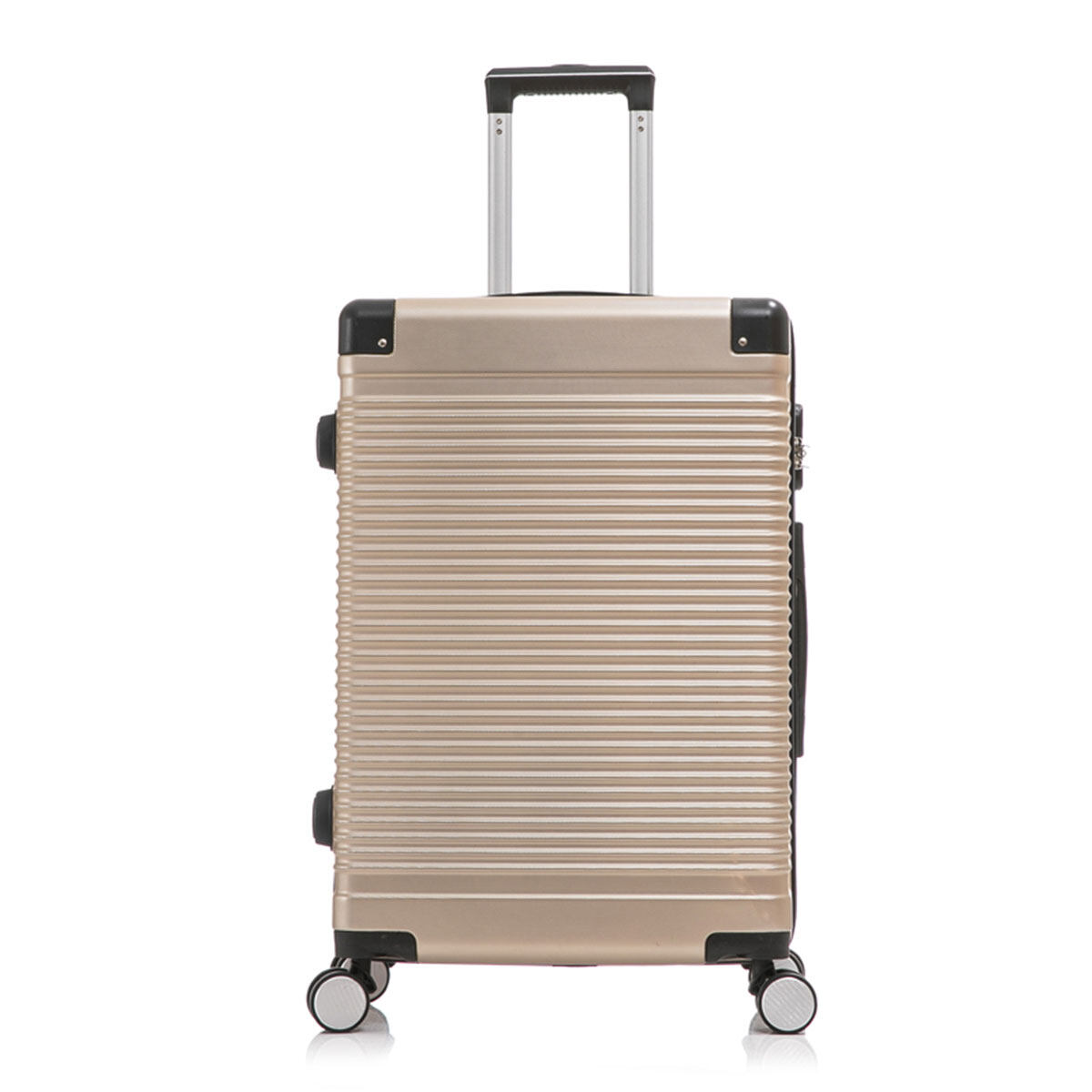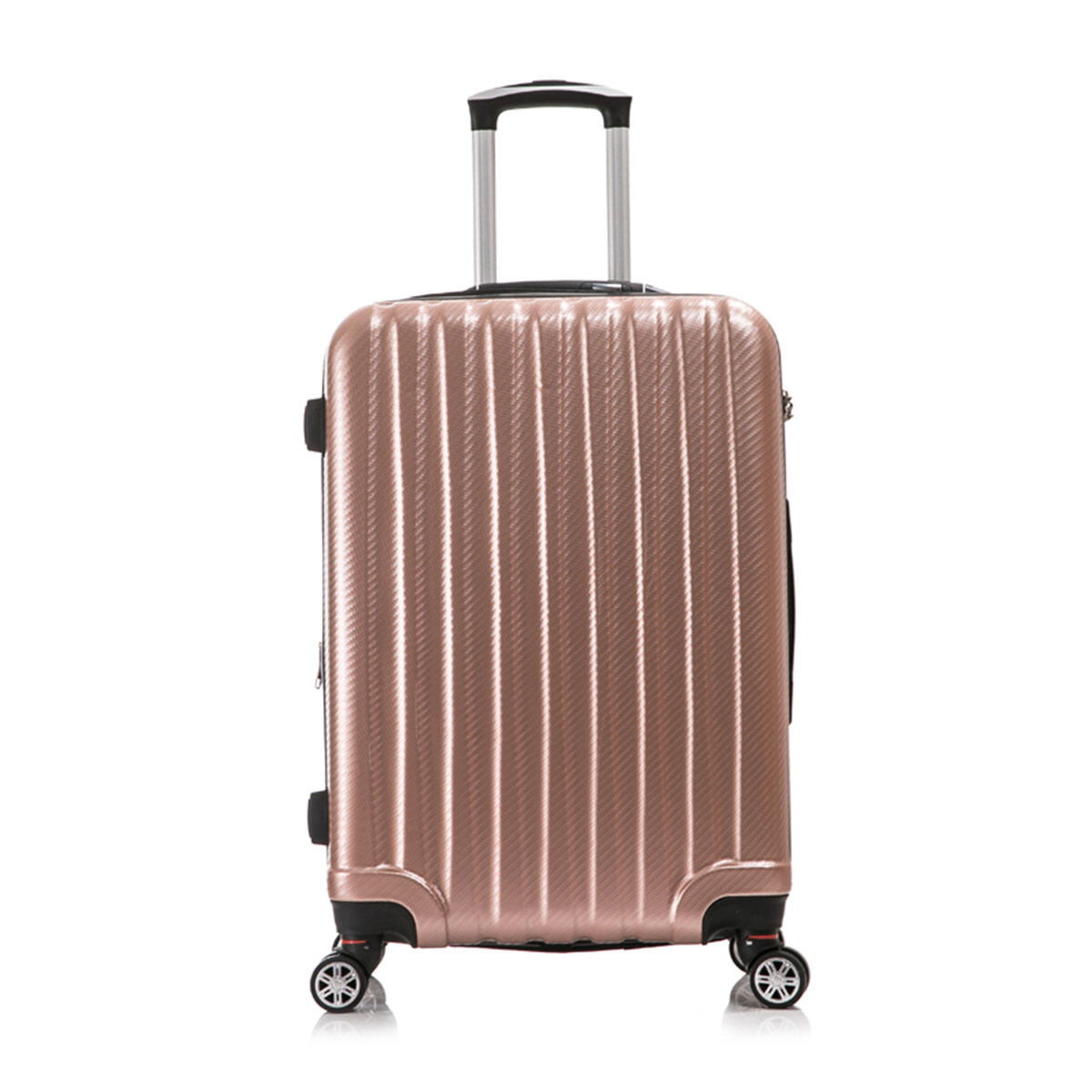Email format error
Email cannot be empty
Email already exists
6-20 characters(letters plus numbers only)
The password is inconsistent
Email format error
Email cannot be empty
Email does not exist
6-20 characters(letters plus numbers only)
The password is inconsistent


When it comes to choosing luggage, the material your suitcase is made of can make a huge difference in durability, weight, and overall performance. Two of the most popular materials you’ll encounter are ABS (Acrylonitrile Butadiene Styrene) and PC (Polycarbonate). Both have their own set of advantages and disadvantages, but choosing the right one depends on your specific travel needs. So, let’s break it down to help you make a more informed decision.
ABS is a thermoplastic polymer that’s widely used in various industries, including luggage manufacturing. It’s known for being lightweight and cost-effective, making it a popular choice for budget-conscious travelers. ABS luggage is generally hard-shell, offering a sturdy outer casing to protect your belongings from impact.

Affordability: One of the biggest selling points of ABS luggage is that it’s affordable. If you're traveling on a budget or looking for a second bag that doesn’t need to last forever, ABS is a solid choice.
Lightweight: ABS luggage is light compared to other materials like hard-shell aluminum cases. For those of us who value portability and want to avoid dragging heavy luggage around, this is a huge plus.
Reasonable Durability: While not as tough as some other materials, ABS is still reasonably durable for its price. It's enough to withstand light impacts, making it a good option for short trips or less frequent flyers.
Not as Impact-Resistant: One of the biggest drawbacks of ABS is that it’s not as impact-resistant as PC. It’s prone to cracking under high pressure, which is something I learned the hard way when my ABS suitcase cracked after a particularly rough baggage handling session at the airport. If you’re worried about the bag taking a hard hit, ABS might not be the best choice.
Less Flexibility: ABS is stiffer than PC, which means it doesn’t have the same level of flexibility or ability to absorb impacts. A few bumps and your luggage could show some signs of wear and tear.
PC, or Polycarbonate, is a high-performance plastic that is often used in luggage to create more durable and impact-resistant bags. If you’re looking for something that can withstand more wear and tear, PC luggage is worth considering.

Durability: Polycarbonate is extremely tough and resistant to cracks and scratches. If you’ve ever experienced the frustration of a cracked or broken suitcase handle or shell, polycarbonate luggage will give you peace of mind. I remember one of my trips to Europe where I had to deal with broken ABS luggage due to baggage mishandling. I switched to PC for my next trip, and I immediately noticed the difference in durability.
Flexibility: PC luggage has a more flexible construction, which allows it to absorb shocks and impacts better than ABS. So, if you’re the type of person who checks their luggage in or often has to deal with rough handling at the airport, polycarbonate’s flexibility can be a lifesaver.
Scratch Resistance: Polycarbonate luggage tends to be more scratch-resistant than ABS. While I can’t say it’s totally scratch-proof (because, let’s face it, luggage gets scuffed), PC bags are far more likely to hold up without looking worn out after a few trips.
Long-Term Investment: If you travel frequently, polycarbonate luggage could be a better long-term investment. It might cost more upfront, but its durability and longevity make it more worthwhile in the long run. I had an old polycarbonate bag that lasted me nearly 8 years without any issues—something I couldn’t say about my previous ABS suitcase.
Price: Polycarbonate luggage tends to be more expensive than ABS, especially when you’re looking at premium brands or designs. The investment is worth it if you travel often, but if you’re on a tight budget, PC luggage might not be in the cards.
Heavier: Compared to ABS, polycarbonate luggage is a bit heavier. This is something I noticed when I switched from ABS to PC—a few extra pounds can make a difference, especially if you’re packing a lot. However, the added weight doesn’t outweigh the durability benefits for frequent flyers.
So, now that we know the pros and cons of both materials, let's dive into the key differences and help you figure out which luggage is best suited for your needs.
If you’re looking for a suitcase that can handle rough airport handling, tight overhead compartments, or being tossed around on road trips, polycarbonate is your best bet. ABS is cheaper and lightweight, but it’s more prone to cracking or denting under pressure. PC luggage wins here hands down, especially if you want something that will last years of travel.
For travelers who don’t want to break the bank but still need a decent-quality suitcase, ABS luggage is the clear winner. It’s a great option for occasional travelers or those who just need something that will last a few trips. For example, if you only travel once or twice a year for business trips, ABS will do just fine without causing you to spend too much.
When it comes to weight, ABS is the lighter option. If you’re someone who tends to overpack (guilty!), lighter luggage can make a difference when it comes to keeping your total weight down. I’ve personally found that every little bit of weight counts when I’m trying to squeeze in one more item.
If you want luggage that maintains its appearance after multiple trips, polycarbonate offers better scratch resistance. ABS luggage tends to show scratches and scuffs more easily, so if you’re traveling often, your ABS suitcase might start looking worn out faster. If you’re particular about keeping your luggage pristine, I recommend investing in PC luggage.
Choosing between ABS luggage and PC luggage ultimately comes down to your personal preferences, how often you travel, and how much you're willing to spend. Here’s a quick guide:
Choose ABS luggage if:
Choose PC luggage if:
Both ABS and PC luggage have their merits. If you want affordable, lightweight luggage that will get the job done for occasional use, ABS is a solid choice. However, if you’re after durability, impact resistance, and scratch resistance, polycarbonate is worth the investment. It really depends on your travel habits and needs.
For me, having switched from ABS to PC a few years ago, I’ve never looked back. I can’t tell you how many times my polycarbonate luggage has saved me from a stressful travel experience—whether it was a rough landing, a mishandled suitcase, or just the wear and tear of travel. It’s been a good investment, and I think it’s worth it for anyone who’s serious about their travel gear.